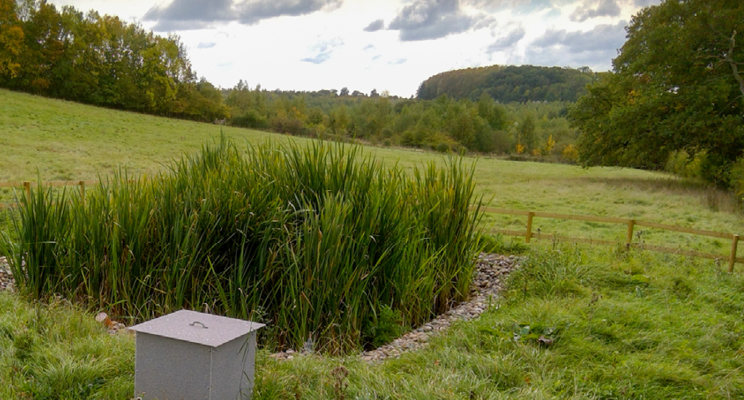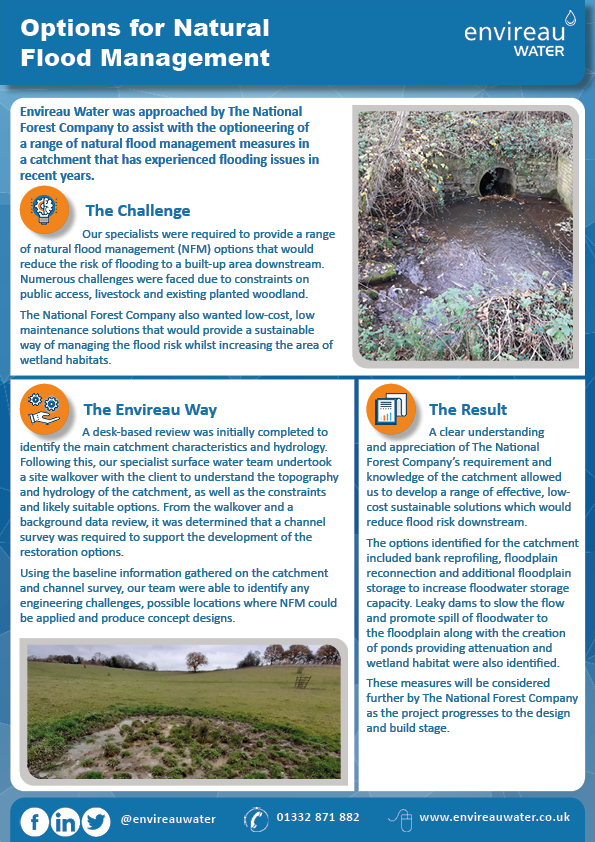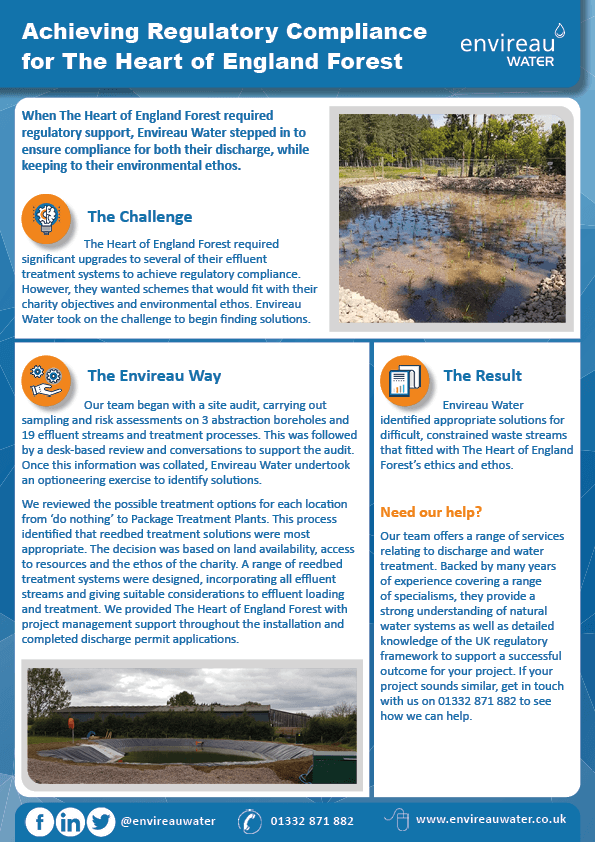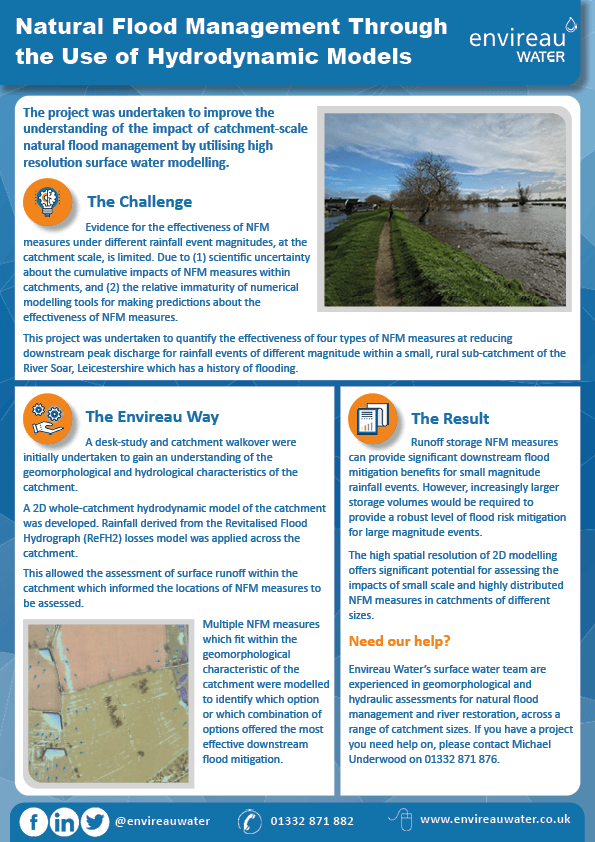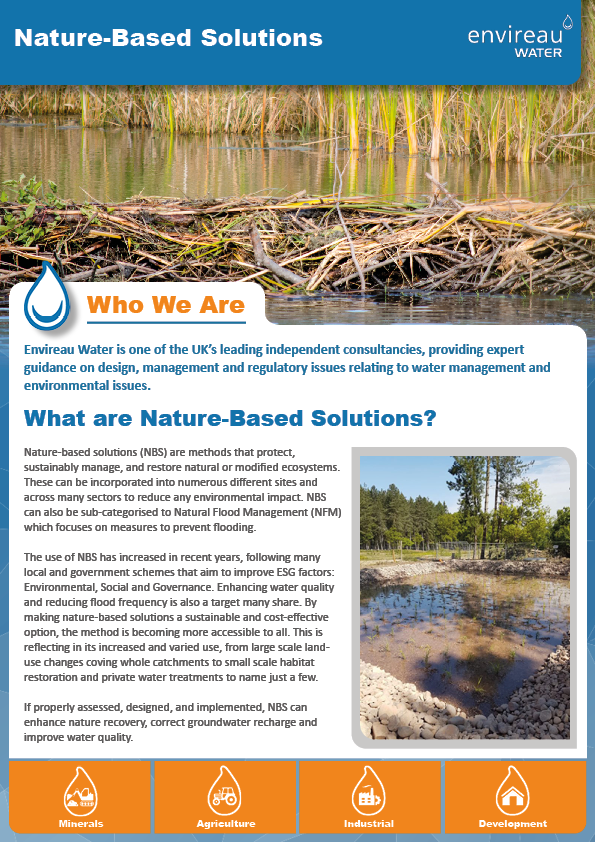Celebrating the Wonders of Nature-based Solutions
Nature-based solutions (NBS) are becoming ever more prevalent when it comes to improving natural and modified ecosystems. As awareness of the damaging impacts of climate change grows and an understanding that improvements need to be made, NBS are one aspect of change that we can implement to address societal challenges, whilst supporting ecosystems.
Our specialist’s knowledge and experience of developing and implementing NBS means they know the most appropriate solution for the problem at hand. Over the course of the next coming weeks, we are celebrating the different ways our experts have practically implemented nature-based solutions into projects across a range of sectors, providing our clients with solutions that deliver environmental and societal benefits, as well as improved natural water systems.
Example projects include:
The National Forest Company required our expertise to help identify methods that would reduce
flood risk to a built-up area further down the catchment. Based on their requirements for low-cost, low maintenance solutions, our surface water team identified a range of NFM measures that would be suitable to reduce flood risk.
A
reedbed water treatment system was designed and installed by our team to meet regulatory requirements.
The Heart of England Forest requested solutions that would fit with their charity objectives and environmental ethos. Nature-based solutions provided a suitable way forward for their upgraded effluent treatment systems.
Envireau Water's Internal Research
To stay at the forefront of nature-based solutions and relevant technologies, an internal research project was carried out to advance our technical understanding. We pushed technical boundaries and evaluated the extent at which our hydrodynamic models could accurately quantify the effectiveness of various NFM measures for downstream peak discharge flooding events.
Nature-based Solutions Overview
Nature-based solutions come in many forms, providing solutions that not only protect and restore ecosystems, but also provide societal benefits. Take a read of our overview sheet to learn more about NBS and how we may be able to support your project.
If you think nature-based solutions could be the solution for you, get in touch with our expert, RebeccaHaw@envireauwater.co.uk or give us a call on
01332 871 882 to learn more about the benefits that can be gained from implementing nature-based solutions.

